
Holy Gospel of Jesus Christ according to Saint Mark 5:21-43.
When Jesus had crossed again (in the boat) to the other side, a large crowd gathered around him, and he stayed close to the sea.
One of the synagogue officials, named Jairus, came forward. Seeing him he fell at his feet
and pleaded earnestly with him, saying, "My daughter is at the point of death. Please, come lay your hands on her that she may get well and live."
He went off with him, and a large crowd followed him and pressed upon him.
There was a woman afflicted with hemorrhages for twelve years.
She had suffered greatly at the hands of many doctors and had spent all that she had. Yet she was not helped but only grew worse.
She had heard about Jesus and came up behind him in the crowd and touched his cloak.
She said, "If I but touch his clothes, I shall be cured."
Immediately her flow of blood dried up. She felt in her body that she was healed of her affliction.
Jesus, aware at once that power had gone out from him, turned around in the crowd and asked, "Who has touched my clothes?"
But his disciples said to him, "You see how the crowd is pressing upon you, and yet you ask, 'Who touched me?'"
And he looked around to see who had done it.
The woman, realizing what had happened to her, approached in fear and trembling. She fell down before Jesus and told him the whole truth.
He said to her, "Daughter, your faith has saved you. Go in peace and be cured of your affliction."
While he was still speaking, people from the synagogue official's house arrived and said, "Your daughter has died; why trouble the teacher any longer?"
Disregarding the message that was reported, Jesus said to the synagogue official, "Do not be afraid; just have faith."
He did not allow anyone to accompany him inside except Peter, James, and John, the brother of James.
When they arrived at the house of the synagogue official, he caught sight of a commotion, people weeping and wailing loudly.
So he went in and said to them, "Why this commotion and weeping? The child is not dead but asleep."
And they ridiculed him. Then he put them all out. He took along the child's father and mother and those who were with him and entered the room where the child was.
He took the child by the hand and said to her, "Talitha koum," which means, "Little girl, I say to you, arise!"
The girl, a child of twelve, arose immediately and walked around. (At that) they were utterly astounded.
He gave strict orders that no one should know this and said that she should be given something to eat.
Commentary of the day : Saint Jerome
« Arise»
«He took the child by the hand and said to her: 'Talitha koum', which means, 'Little girl...arise.'» «Since you have been born again, you are to be called 'little girl'. Little girl, arise for my sake: your healing does not come from you.» «And immediately the little girl arose and walked around.» May Jesus touch us, too, and at once we shall walk. We may well be paralysed, our deeds may be evil and we may be unable to walk, we may be lying on the bed of our sins... but if Jesus touches us then we shall immediately be healed. Peter's mother-in-law was suffering with fever: Jesus touched her hand and she arose and immediately served him (Mk 1,31)...
«They were utterly astounded, and he gave them strict orders that no one should know this.» Do you see now why he put the people out when he was going to work a miracle? He ordered, and not just ordered but strictly ordered, that no one should know of this. He ordered the three apostles and he ordered the parents, too, that no one should know. Our Lord ordered them all, but the little girl herself, she who had stood up, could not be silent.
«And he said she should be given something to eat»: so that her resurrection might not be thought to be a ghostly apparition. And he himself, after his resurrection, ate fish and a piece of honeycomb (Lk 24,42)... Lord, I beseech you, touch our hands as we, too, lie prostrate. Make us rise from our bed of sins and enable us to walk. And when we have walked, make them give us something to eat. We cannot eat when we are lying down; unless we are standing we shall not be able to receive the Body of Christ.
«They were utterly astounded, and he gave them strict orders that no one should know this.» Do you see now why he put the people out when he was going to work a miracle? He ordered, and not just ordered but strictly ordered, that no one should know of this. He ordered the three apostles and he ordered the parents, too, that no one should know. Our Lord ordered them all, but the little girl herself, she who had stood up, could not be silent.
«And he said she should be given something to eat»: so that her resurrection might not be thought to be a ghostly apparition. And he himself, after his resurrection, ate fish and a piece of honeycomb (Lk 24,42)... Lord, I beseech you, touch our hands as we, too, lie prostrate. Make us rise from our bed of sins and enable us to walk. And when we have walked, make them give us something to eat. We cannot eat when we are lying down; unless we are standing we shall not be able to receive the Body of Christ.

 Holy Gospel of Jesus Christ according to Saint Mark 5:1-20.
Holy Gospel of Jesus Christ according to Saint Mark 5:1-20. 

 Holy Gospel of Jesus Christ according to Saint Mark 4:21-25.
Holy Gospel of Jesus Christ according to Saint Mark 4:21-25. 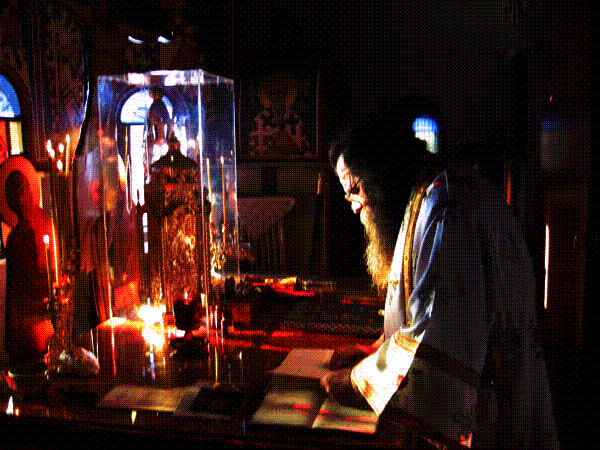

 Holy Gospel of Jesus Christ according to Saint Matthew 4:12-23.
Holy Gospel of Jesus Christ according to Saint Matthew 4:12-23. 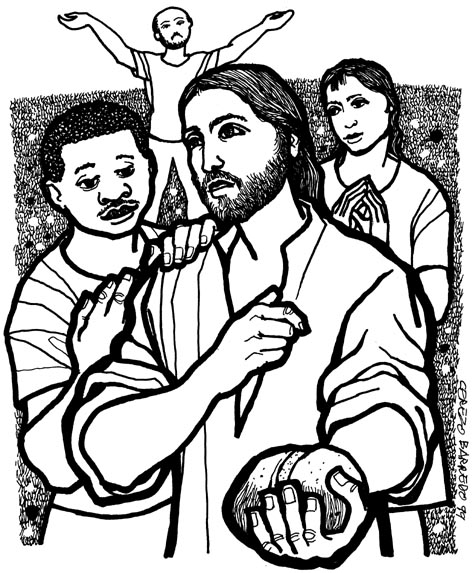 Holy Gospel of Jesus Christ according to Saint Mark 3:20-21.
Holy Gospel of Jesus Christ according to Saint Mark 3:20-21.  Holy Gospel of Jesus Christ according to Saint Mark 3:13-19.
Holy Gospel of Jesus Christ according to Saint Mark 3:13-19. 

 Holy Gospel of Jesus Christ according to Saint Mark 2:23-28.
Holy Gospel of Jesus Christ according to Saint Mark 2:23-28.  Holy Gospel of Jesus Christ according to Saint Mark 2:18-22.
Holy Gospel of Jesus Christ according to Saint Mark 2:18-22. 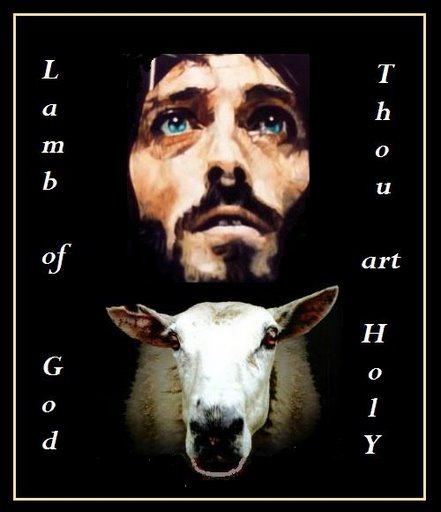 Holy Gospel of Jesus Christ according to Saint John 1:29-34.
Holy Gospel of Jesus Christ according to Saint John 1:29-34. 
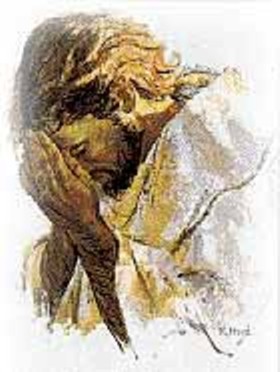 Holy Gospel of Jesus Christ according to Saint Mark 1:29-39.
Holy Gospel of Jesus Christ according to Saint Mark 1:29-39. 
 Holy Gospel of Jesus Christ according to Saint Mark 1:14-20.
Holy Gospel of Jesus Christ according to Saint Mark 1:14-20.  Holy Gospel of Jesus Christ according to Saint Matthew 3:13-17.
Holy Gospel of Jesus Christ according to Saint Matthew 3:13-17. 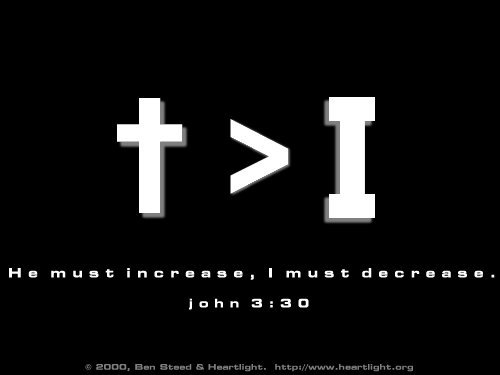 Holy Gospel of Jesus Christ according to Saint John 3:22-30.
Holy Gospel of Jesus Christ according to Saint John 3:22-30.  Holy Gospel of Jesus Christ according to Saint Luke 5:12-16.
Holy Gospel of Jesus Christ according to Saint Luke 5:12-16.  Holy Gospel of Jesus Christ according to Saint Luke 4:14-22.
Holy Gospel of Jesus Christ according to Saint Luke 4:14-22. 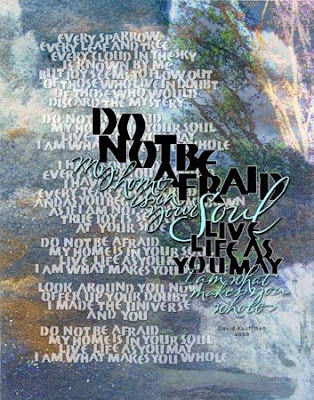 Holy Gospel of Jesus Christ according to Saint Mark 6:45-52.
Holy Gospel of Jesus Christ according to Saint Mark 6:45-52.  Holy Gospel of Jesus Christ according to Saint Mark 6:34-44.
Holy Gospel of Jesus Christ according to Saint Mark 6:34-44.  Holy Gospel of Jesus Christ according to Saint Matthew 4:12-17.23-25.
Holy Gospel of Jesus Christ according to Saint Matthew 4:12-17.23-25.  Holy Gospel of Jesus Christ according to Saint Matthew 2:1-12.
Holy Gospel of Jesus Christ according to Saint Matthew 2:1-12. 